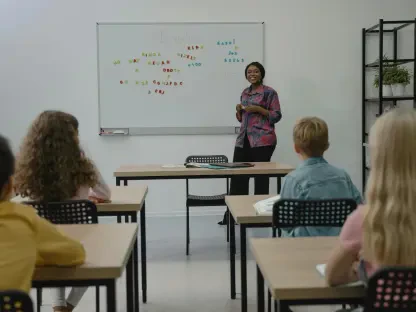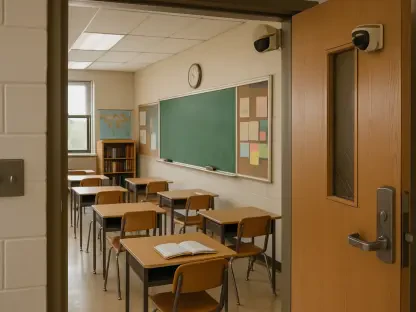In the quaint yet dynamic province of Prince Edward Island (P.E.I.), Canada, a remarkable movement is emerging from the campus of the University of Prince Edward Island (UPEI). Students at this institution are raising their voices through poignant letters published in local news outlets, shining a spotlight on critical social, health, and environmental challenges. Their passionate advocacy targets the struggles of often-overlooked groups—seniors grappling with inadequate care, children facing uncomfortable learning conditions, and Indigenous communities enduring the lingering effects of colonialism. Far from being mere observers, these young individuals are positioning themselves as champions for change, urging both local and global entities to address systemic failures. Their words carry a sense of urgency and responsibility, reflecting a deep commitment to equity and justice. This article delves into the specific issues these students are tackling, exploring how their efforts are amplifying the needs of vulnerable populations and challenging society to act with compassion and resolve.
Speaking Out for Seniors’ Health and Comfort
The health care crisis affecting seniors in P.E.I. has become a focal point for UPEI students determined to see improvements. A particularly striking concern is the severe shortage of family doctors, which forces many elderly residents to seek help in already overwhelmed emergency rooms for issues that don’t require urgent attention. This not only delays critical care for others but also leaves seniors vulnerable, often returning home without adequate treatment. Students with firsthand experience in care homes describe the exhaustion of health care workers, many of whom are leaving the field due to relentless pressure and poor working conditions. The push from these young advocates is for swift systemic reforms—better scheduling, reduced administrative loads, and enhanced team support to retain staff. They also highlight the slow rollout of patient medical homes as a potential solution, arguing that the pace of change must accelerate to ensure seniors receive the basic medical access they desperately need.
Another pressing issue for UPEI students is the substandard living conditions in long-term care facilities, particularly during extreme weather. The absence of air conditioning in many homes during scorching summer heatwaves poses a serious risk to seniors, especially those with chronic conditions like asthma that can worsen under such strain. A student’s account of visiting a friend in a sweltering basement room underscores the indignity faced by residents who deserve comfort in their later years. This situation also adds pressure to an already burdened health care system as preventable health issues arise. The proposed remedy is straightforward yet vital: government-funded programs to install cooling systems in these facilities. Students frame this as a moral obligation, emphasizing that protecting the elderly from environmental hazards isn’t a luxury but a fundamental right that must be prioritized by provincial authorities without further delay.
Addressing Children’s Needs in Educational Spaces
UPEI students are equally fervent about the well-being of children in P.E.I.’s aging school infrastructure, where temperature regulation remains a significant barrier to learning. Classrooms often become unbearably cold in winter and stiflingly hot during spring and fall, directly impacting students’ ability to concentrate and engage. Many facilities suffer from outdated heating systems, inadequate ventilation, and, in some cases, a complete lack of windows or direct heat in certain areas. Such conditions aren’t merely uncomfortable—they hinder academic performance and pose health risks to young learners. Student advocates are calling for the installation of heat pumps as a practical, dual-purpose solution for heating and cooling. They suggest a phased approach, beginning with high-traffic areas like cafeterias and libraries, to manage costs while progressively improving the learning environment for all children across the province.
The frustration with governmental spending priorities is palpable among these young voices as they question the disparity in resource allocation. While incentives exist for private homeowners to install heat pumps, similar support for public schools appears to be lacking, despite the clear and urgent need. This inconsistency raises broader concerns about how vulnerable groups, particularly children, are often sidelined in budget decisions. UPEI students argue that educational spaces must be treated as critical infrastructure, deserving of the same attention and investment as other public services. Their advocacy extends beyond mere criticism, offering a constructive vision for how incremental changes can yield significant benefits. By prioritizing the comfort and safety of students, the government can demonstrate a commitment to future generations, ensuring that schools are places of growth rather than struggle, as these passionate young activists continue to demand.
Tackling Global Inequities and Historical Wrongs
Beyond local challenges, UPEI students are broadening their advocacy to address global injustices, particularly the ongoing effects of colonialism perpetuated by Canadian mining companies in Latin America. Companies such as Barrick Gold in Argentina and Equinox Gold in Mexico are criticized for practices that contaminate water sources, occupy Indigenous lands without consent, and fail to deliver promised compensation to affected communities. Students describe these actions as a modern extension of colonial exploitation, often masked by corporate narratives of progress or sustainability. Their letters call for heightened public awareness and solidarity with Indigenous groups fighting to preserve their rights and heritage against profit-driven agendas. This perspective challenges citizens to look beyond borders and recognize the interconnected nature of oppression and resistance in today’s world.
The connection between local and global issues is a recurring theme in the students’ writings, illustrating a sophisticated understanding of systemic inequity. By linking the struggles of seniors and children in P.E.I. with the plight of Indigenous communities abroad, they weave a compelling narrative of shared humanity that transcends geography. Their advocacy isn’t limited to critique—it’s a demand for accountability from corporations and governments alike, urging a reevaluation of policies that prioritize economic gain over human dignity. The emphasis on collective action suggests that change requires a united front, where informed communities stand together against exploitation. This global outlook from UPEI students underscores their role as not just local activists but as participants in a wider movement for justice, amplifying voices that might otherwise be drowned out by more powerful interests.
Uniting for a Just Future
Reflecting on the impactful contributions of UPEI students, it’s evident that their letters marked a significant moment of awakening for many in P.E.I. and beyond. Their persistent focus on seniors’ health care shortages, inadequate care home conditions, poor school environments, and the global exploitation of Indigenous lands brought critical issues into sharp relief. Each concern they raised was backed by personal observations and a clear vision for improvement, demonstrating a maturity and resolve that resonated deeply with readers and policymakers alike. Their efforts laid a foundation for dialogue, pushing communities to confront uncomfortable truths about systemic neglect that had persisted for far too long.
Looking ahead, the path forward involves building on the momentum these students created. Stakeholders must collaborate to implement tangible solutions—whether through health care reforms, infrastructure upgrades, or stronger corporate regulations—to address the vulnerabilities they highlighted. Establishing task forces to prioritize seniors’ and children’s needs in P.E.I., alongside supporting international advocacy for Indigenous rights, could be a starting point. Their voices have set a precedent, encouraging ongoing engagement from youth and inspiring a collective push toward equity. The challenge now lies in translating their powerful words into sustained action, ensuring that the dignity of all vulnerable groups remains at the forefront of societal progress.









